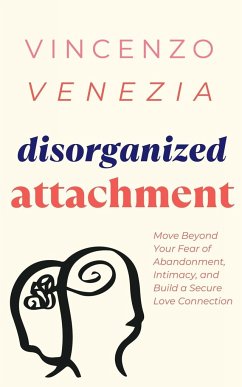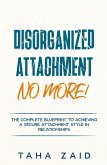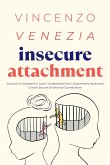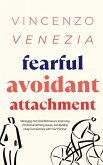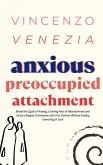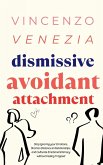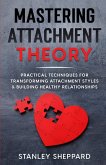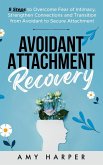Do you ever feel like you're on a rollercoaster in your relationship? Do you have a deep desire for connection and intimacy, but also a fear of being hurt or abandoned? Do you sometimes find yourself pushing your partner away when they get too close, or clinging to them desperately? Attachment styles are the way we connect with other people. They are formed in early childhood and can have a significant impact on our adult relationships. People with disorganized attachment styles often experience fear and anxiety in intimate relationships. They may have a negative self-image and engage in harmful self-talk. They may also feel intensely lonely, but the stress and fear associated with intimacy can cause them to act erratically and push others away. You're always walking on eggshells, trying to avoid saying or doing anything that will upset your partner. You're constantly worried that you'll do something to trigger their abandonment fears. These experiences can teach you that the world is an unsafe place and that people are not trustworthy. This can make it difficult to form secure attachments in adulthood. I recommend reading this book if: You feel like you're always walking on eggshells, trying to avoid saying or doing anything that will upset your partner. You're constantly worried that you'll do something to trigger their abandonment fears. You push your partner away when they get too close, even though you desperately want them to stay. You're afraid that if you let them in, they'll see the real you and reject you. You experience intense emotions, such as love, anger, and jealousy, and it can be difficult for you to regulate them. This can lead to conflict and volatility in your relationship. You have a negative self-image and believe that you are unlovable or unworthy of love. This makes it difficult for you to trust and open up to your partner. You struggle to communicate your needs and feelings to your partner. You may also be more likely to misinterpret your partner's words and actions. You have a history of negative childhood experiences. These experiences taught you that the world is an unpredictable place and that people are not always reliable. This can make it difficult for you to form secure attachments in adulthood. These emotional states and behaviors can have a significant impact on your romantic relationships. You may find yourself in a cycle of pushing your partner away and then pulling them back in, which can be very confusing and painful for both of you. Instead, the partner who loves someone with disorganized attachment might feel:Confusion and frustration due to erratic and unpredictable behavior. Hurt and loneliness due to difficulty trusting and opening up. Insecurity and anxiety due to fear of abandonment. Resentment and hopelessness due to the challenges of the relationship. It is normal and understandable for the partner to feel this way, but it is important to take steps before the situation becomes irreversible. If you or your loved one has disorganized attachment, this manual can help you move towards secure attachment and build stronger, more loving relationships. With its advice and support, you can learn to create a more secure and fulfilling future for yourselves and your family.
Hinweis: Dieser Artikel kann nur an eine deutsche Lieferadresse ausgeliefert werden.
Hinweis: Dieser Artikel kann nur an eine deutsche Lieferadresse ausgeliefert werden.

